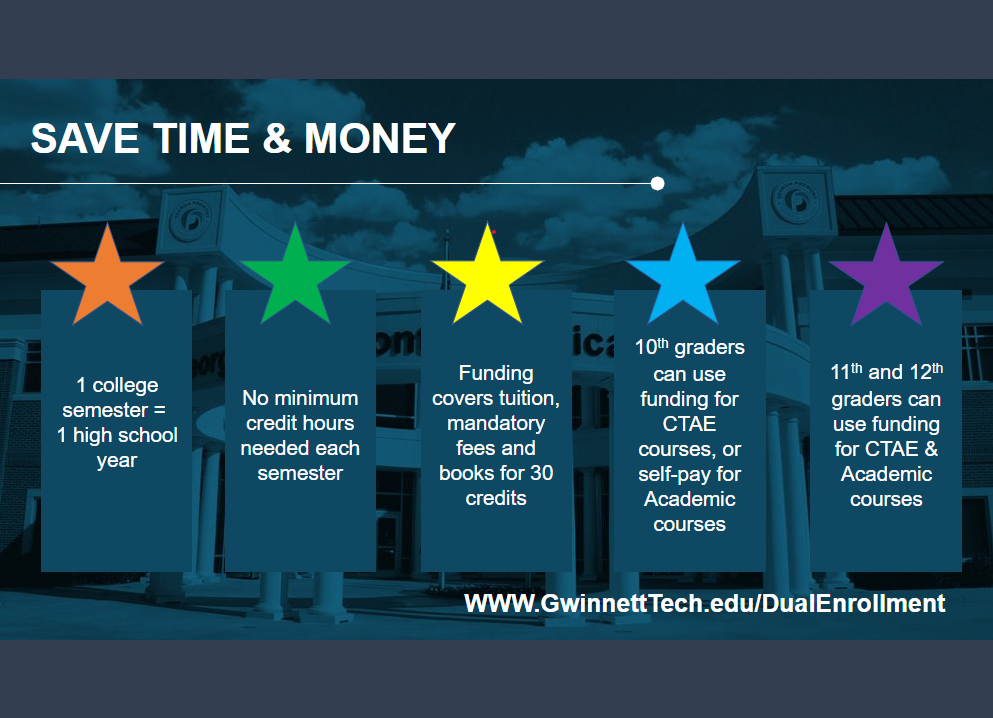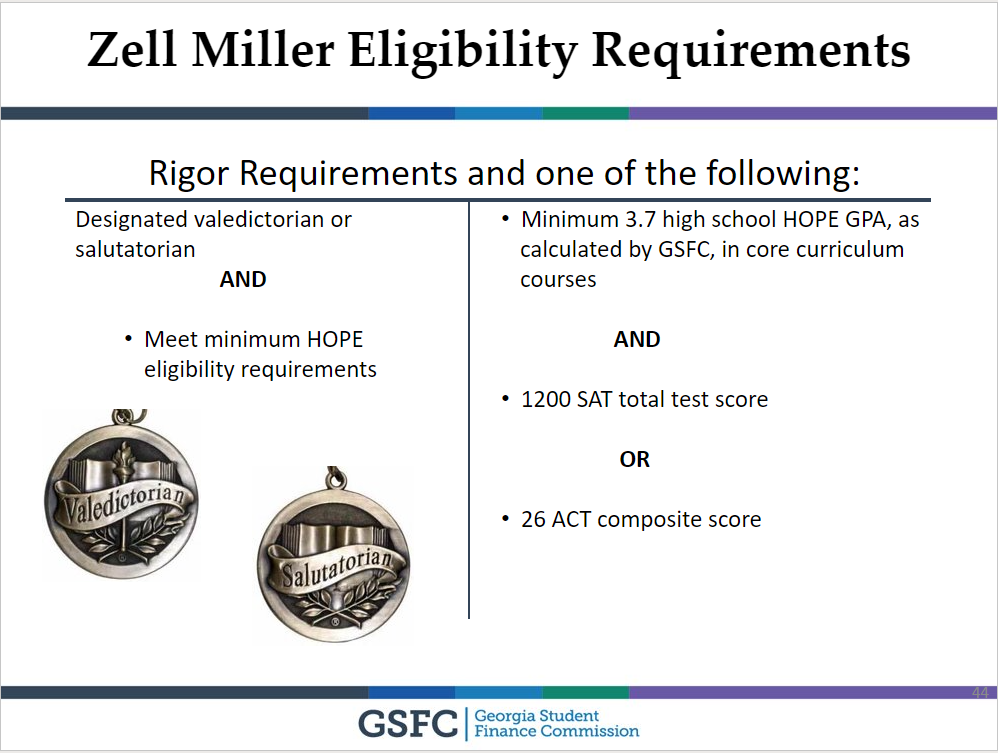Finding Scholarship Dollars for College
Our annual Finding Scholarship Dollars for College event is one of our largest attended every year. As research proves, a community with the best, most-educated talent wins the game. In communities where the education standard is high there is a higher standard of living. Higher education standards also attract great companies and attracts and creates great entrepreneurs within a community. It also results in low poverty rates, low homelessness rates and much more, which is part of the reason Gwinnett has its own technical collage, medical school and four-year college. But the how of going to college can be a little expensive! The average cost for attending a public college or university is somewhere around $25,000 a year. For private schools, it’s closer to $50,000 a year. And college debt in America is 1.6 TRILLION! But, the good news is, there is money out there for scholarships, and we assembled a great group for our annual event to tell you how to access those funds.
Here are some things to know about scholarships. Please note, these are only select highlights from the event. For complete information, watch the virtual event or download the slides.
High School Counselors & the Journey to College
The Gwinnett School of Mathematics, Science, and Technology
- Find out how your counseling department sends out information – Twitter, Email, Instagram, website?
- READ these notices!
- Use counseling websites for other schools to see scholarship listings
- Ask counselors if the scholarship seems odd
- If a scholarship application requires a fee, it might not be a good one
- Pay attention to the source
Timeline:
- College applications FIRST
- Finish at least one application by November 15
- All essays and other applications finished by Dec 1
- Pay attention to whether the school requires earlier applications for scholarship consideration.
- Seeking money NEXT
- Turn focus to scholarship searches
- Spend time each week devoted to searches and scholarship applications
- PARENTS and STUDENTS, complete the FAFSA beginning October 1
- Gather tax/financial documents for previous year
- Research FAFSA by going to www.fafsa.gov
Remember:
- Start this process NOW and dedicate a little time each week. Do a personal “cost-benefit analysis” to decide whether or not to apply.
- Paying for college is a family decision…YOU decide what you are willing and able to afford
- Discuss finances EARLY and come up with plans based on what may happen with financial aid
College Planning
Georgia Gwinnett College
Tasks for high school students
- Take SAT/ACT Tests – put all colleges under consideration as a recipient of scores (may consider enrolling in a prep course). Research competitive college requirements.
- Take AP/IB level courses or participate in Dual Enrollment (research college requirements)
- Investigate careers and majors
- Attend College/University Preview Days
- Visit College/University campuses
College choices should include all schools that the student is interested in attending. Don’t be concerned with costs at this point. Be sure the list contains dream schools and those the student would consider attending.
- Narrow down college choices.
- Apply early for admissions (and housing if needed) at college choices.
- Apply for financial aid with FAFSA and any other form college requires – include all colleges on FAFSA.
- Decide and attend early orientation.
How do you choose a college?
- Investigate different majors and careers
- Research colleges that offer these programs of study – Gafutures.org and bigfuture.collegeboard.org
- Don’t discount a college based on cost
How do you pay for college?
Financial Aid is a mixture of programs designed to provide assistance with college expenses.
- Scholarships
- Grants
- Work Study
- Student Loans Requires repayment
- Parent Loans Requires repayment
Watch the Zoom recording for more on this!
Dual Enrollment
Gwinnett Technical College
What is dual enrollment?
A state funded program that allows high school students to earn college credit that is applied towards high school graduation. Promotes access to post-secondary opportunities and prepares a skilled workforce.

Watch the Zoom recording for more on this!
State Aid/HOPE Program
Georgia Student Finance Commission
HOPE General Eligibility Requirements
- Be a legal resident of Georgia
- Be registered with the Selective Service, if required
- Be in compliance with the Georgia Drug-Free Postsecondary Education Act of 1990
- Meet U.S. citizenship or eligible non-citizen requirements
- Be in good standing on all student loans and other financial aid programs
- Attend an eligible postsecondary institution
- Must be working toward the first undergraduate program
- Students must pursue an associate or bachelor’s degree
- Graduate with a 3.0 high school HOPE GPA
- After high school graduation, may also be earned in college
- 4 academically rigorous course credits

Don’t forget you can watch the entire event and download the slides!